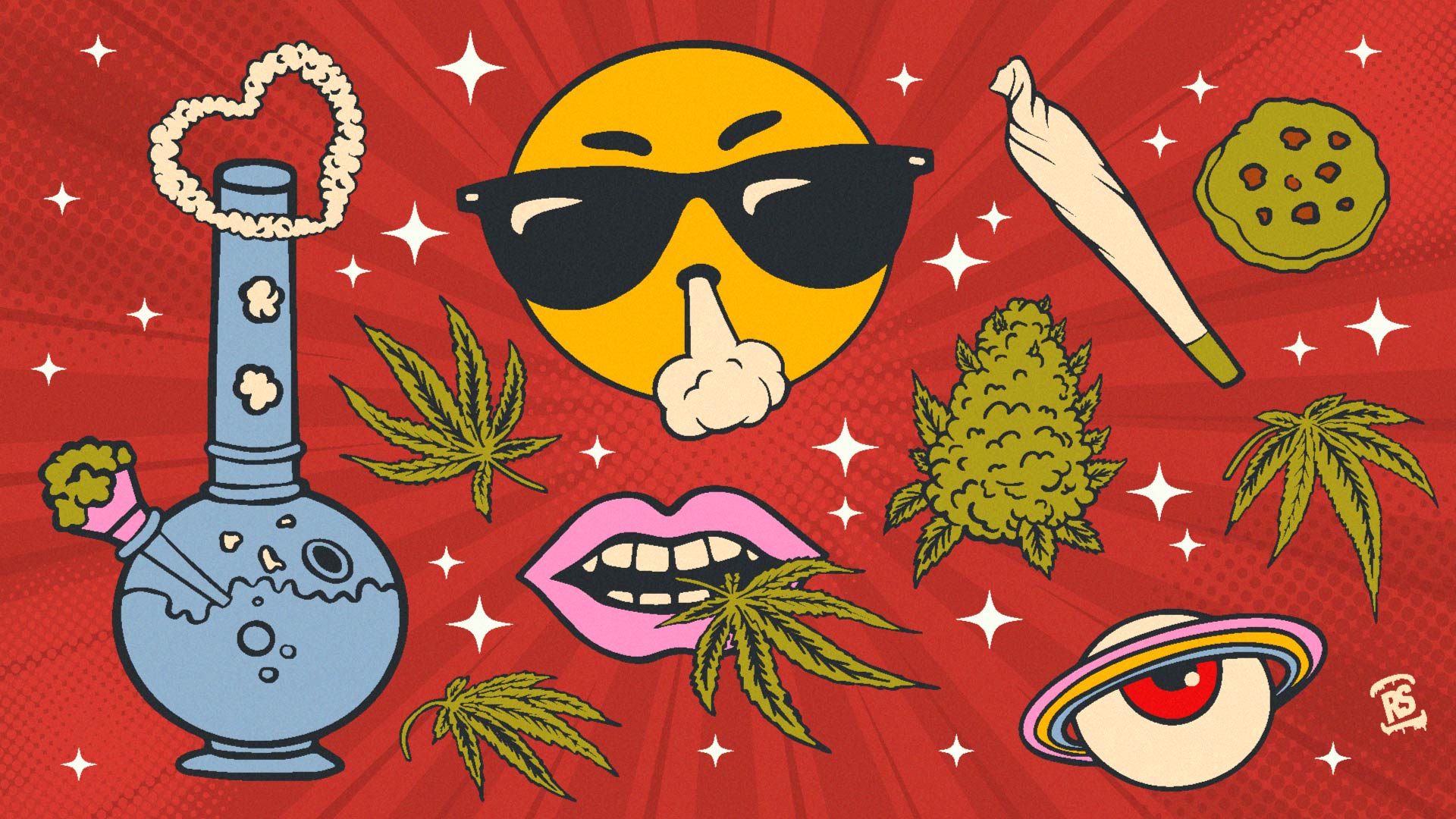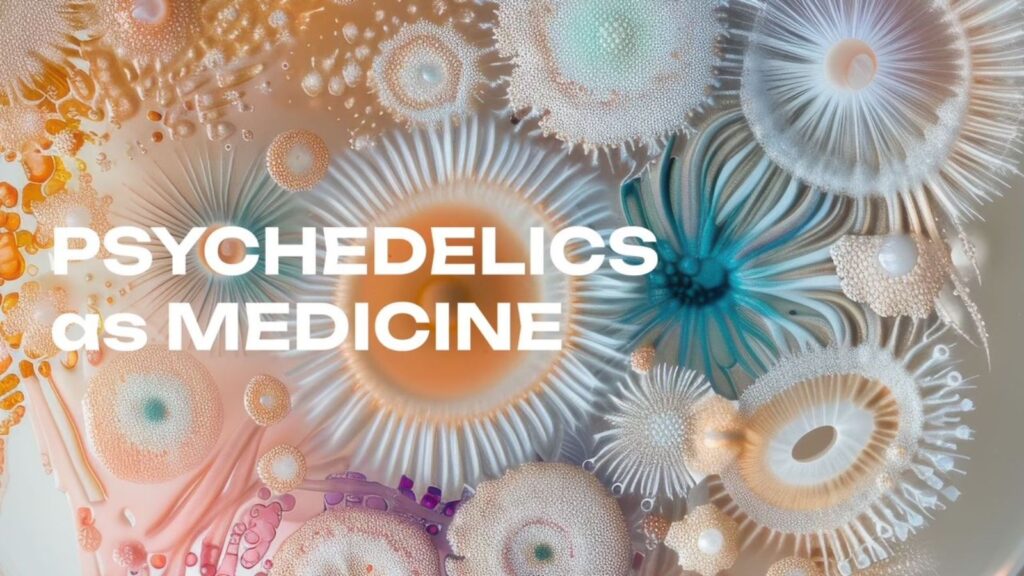Cannabis legalization continues to gain traction in the United States, but it’s not fully legal because of the compound Delta-9-THC. Delta-9-THC is a mind-altering compound. Many states have legalized medical cannabis. And some states have included legal adult-use cannabis (more on specific states below). Adult-use refers to allowing any person over the age of 21 to use cannabis.
While cannabis is not legalized nationwide yet, some specific compounds in the cannabis plant are legal nationwide, such as cannabidiol (CBD). CBD is legal nationwide because it provides health benefits and does not alter the mind.
What Is Delta-9-THC?
Delta-9-THC produces psychoactive effects and is the compound in the cannabis plant that is associated with the “high” produced from consuming cannabis. It gives feelings of happiness, euphoria, sedation and symptom relief. Delta-9-THC is psychotropic meaning that it affects the consumer’s perception, behavior and mental activity. When one consumes Delta-9-THC they become intoxicated, or their physical and mental control is inhibited.
Delta-9 in the Body
The human brain produces neurotransmitters so that neurons and neural circuits can communicate with each other. The neurotransmitters deliver messages to different neurons by attaching themselves to receptors. One type of receptor that the body makes is called an endocannabinoid receptor. When bodies experience stress, fear, pain or other sensations, they release endocannabinoids. Then, the endocannabinoids attach to the receptors to relieve these negative sensations. The endocannabinoids, endocannabinoid receptors, and the circuits on which they travel, make up the endocannabinoid system within the body.
The human body produces its own cannabinoids to keep the body operating efficiently. So with the wrong dose of Delta-9-THC, it can overwhelm the body’s endocannabinoid system and prevent the body’s natural chemicals from doing their job correctly.
Different Forms of Delta-9-THC
Similar to CBD, Delta-9-THC comes in various forms to meet specific needs and preferences. Delta-9-THC can be consumed through inhalation, oral consumption, as a topical, sublingual or tincture. Depending on why someone chooses to consume Delta-9-THC may dictate the route they choose to use the substance.
Inhalation
Many consumers prefer to use the method of inhalation because it’s the fastest route of consumption. When inhaled, Delta-9-THC enters the body through the lungs and is passed quickly into the bloodstream. The consumer can feel the effects almost instantaneously. Many medical cannabis consumers prefer the method of inhalation because of the fast relief. Relief occurs within minutes, peaking around an hour, and starts to wear off between two and three hours.
Cannabis can be inhaled by smoking or vaporizing. Smoking cannabis is the burning of the flowers and inhaling the active cannabinoids that are released. Vaporizing is when the plant is heated to a temperature and the active ingredients are released. Vaporizing reduces the burning feeling of smoking and has been shown to be better for the lungs.
Oral Consumption
Delta-9-THC can be consumed orally via edibles, tinctures, capsules or oils. The onset of the effects can take about 30 minutes to an hour, and the effects can last up to six hours. Oral consumption is preferred for consumers who are looking for more long-term relief.
Topicals
Topicals can come in the form of salves, lotions, oils, bath salts and patches. They’re applied to the skin and the cannabinoids penetrate the skin. This method of consumption is best for pain (i.e. arthritis) and inflammation. Topicals are not psychoactive. Topical application does not allow a lot of cannabinoids to reach the brain.
The relief from a topical application from salves, lotions, oils and bath salts happens quickly. Research shows the onset can happen within minutes and effects last for one to two hours. However, patches work a bit differently. Patches typically have an onset of about two hours and can last up to two days depending on the release nature of the product.
Sublinguals
Sublingual refers to being applied under the tongue. Sublingual products include tinctures, sublingual spray, dissolvable strips or medicated lozenges. There’s a high density of blood vessels in the mouth, particularly under the tongue. So the cannabinoids in cannabis, including Delta-9-THC, can be absorbed directly into the bloodstream when it’s placed under the tongue.
The onset time is close to the onset time of oral consumption, but some studies show it has an earlier onset. Studies say that holding the product under the tongue for at least 30 seconds (some say two minutes), can help the cannabinoids enter the bloodstream more quickly.
Delta-9-THC Medical Benefits
Medical cannabis has been used medicinally for over 3,000 years. Today, over half of the United States has legalized medical cannabis. Delta-9-THC has been shown to treat:
Chronic Pain
Chronic pain is the most common use of medical cannabis. Delta-9-THC can help with pain from arthritis, joint pain and physical injury. The most common ways to consume cannabis in chronic pain patients are orally and topically. Medical cannabis has helped people get off highly addictive opioids.
Nausea From Chemotherapy
Delta-9-THC has been used for chemotherapy nausea for more than 30 years. It’s been found to be extremely effective.
Epilepsy
People living with epilepsy have reported that it helps to significantly reduce seizures. However, there’s not a lot of research to support this. It’s been shown that CBD is more effective at reducing seizures than Delta-9-THC.
Mental Health
Depression is one of the most common mental health disorders. And the endocannabinoid system plays an important role in mood regulations. Patients report success in relieving depression with cannabis, but there’s not a lot of research to support this. It’s been shown that CBD helps ease depression more effectively than Delta-9-THC.
Sleep Disorders
There is moderate evidence that cannabis helps with sleep disorders related to conditions such as sleep apnea, fibromyalgia, chronic pain or multiple sclerosis.
Anorexia and Weight Loss
Anorexia and weight loss are side effects of cancer and many other diseases. Cannabis has been shown to increase appetite and help patients have an appetite and decrease weight loss. It’s been shown that Delta-9-THC is more effective at increasing appetite than CBD.
Side Effects
The temporary side effects of Delta-9-THC are:
- Anxiety
- Red eyes
- Increased heart rate
- Dry mouth
- Memory loss
- Slower reaction times
- Coordination problems
Where Is It Legal?
In some states cannabis still remains fully illegal, except for products containing less than 0.3% THC. Other states allow cannabis use for medical use only. And some states allow cannabis use for anyone over the age of 21. The specific laws vary from state to state.
Medical-only States
- Arkansas
- Connecticut
- Delaware
- Florida
- Georgia*
- Hawaii
- Indiana*
- Iowa*
- Kentucky*
- Louisiana
- Maryland
- Minnesota
- Mississippi
- Missouri
- New Hampshire
- New Mexico
- North Dakota
- Ohio
- Oklahoma
- Pennsylvania
- Rhode Island
- South Dakota
- Texas*
- Utah
- Virginia*
- West Virginia
- Wisconsin*
*These states have a cap on THC, only allowing low levels of THC for medical cannabis.
Adult-use and Medical States
- Alaska
- Arizona
- California
- Colorado
- District of Columbia
- Illinois
- Maine
- Massachusetts
- Michigan
- Montana
- Nevada
- New Jersey
- New York
- Northern Mariana Islands
- South Dakota
- Oregon
- Vermont
- Washington
Full Prohibition
- Alabama
- Idaho
- Kansas
- Nebraska
- North Carolina
- South Carolina
- Tennessee
- Wyoming
Disclaimer: Cannabis is potentially categorized as an illegal drug. Reality Sandwich is not encouraging the use of these drugs where prohibited. However, we believe that providing information is imperative for the safety of those who choose to explore these substances. This guide is intended to give educational content and should in no way be viewed as medical recommendations.













